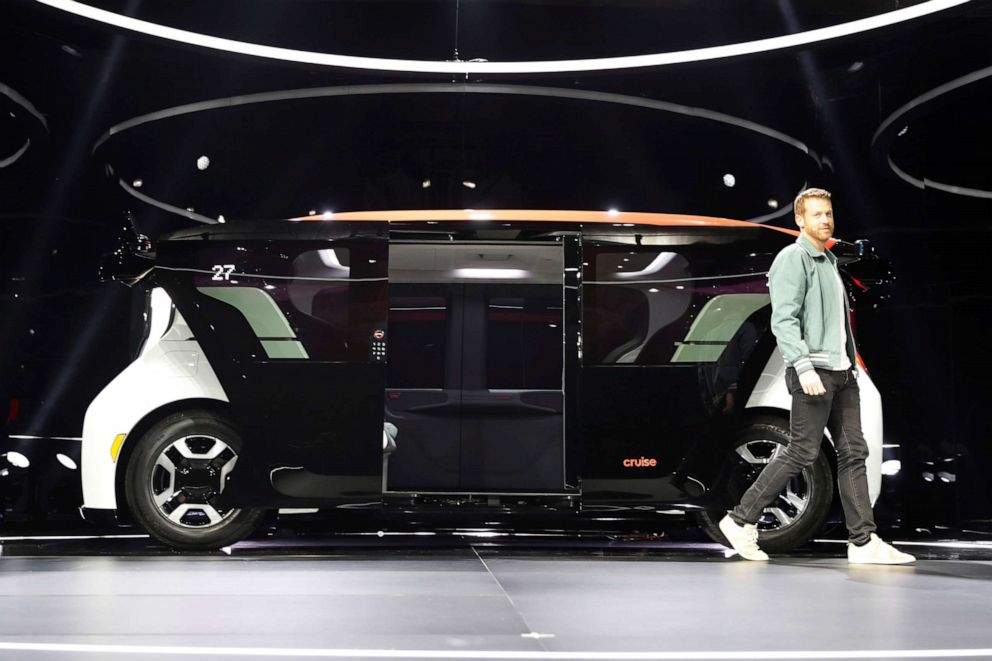Table Of Content
- Cruise wasn’t hiding the pedestrian-dragging video from regulators — it just had bad internet
- Cruise CEO Kyle Vogt Resigns After Weeks Of Crisis
- Cruise’s C.E.O. Quits as the Driverless Carmaker Aims to Rebuild Trust
- The best cruises of 2022, according to U.S. News & World Report
- Robotaxi companies have a serious trust issue
- Kyle Vogt, CEO of Robotaxi Developer Cruise, Resigns as Questions Linger Over Grisly Crash
- GM names Cruise co-founder to once again run the self-driving business after CEO's unexpected departure

"The startup I launched in my garage has given over 250,000 driverless rides across several cities, with each ride inspiring people with a small taste of the future," he also wrote. Kyle Vogt has resigned as CEO of Cruise, General Motors' autonomous vehicle unit, as questions build about the safety of self-driving cars. Kyle Vogt has resigned as CEO of Cruise, General Motors’ autonomous vehicle unit, as questions build about the safety of self-driving cars.
Cruise wasn’t hiding the pedestrian-dragging video from regulators — it just had bad internet
Initially, the pair had focused on kits that could retrofit a vehicle and turn it into a self-driving car. GM took interest and acquired the company in March 2016 in a deal of cash and stock valued at more than $1 billion. Initially, that means taking more of a direct hand in Cruise’s operation. Barra reportedly told employees that GM general counsel Craig Glidden will serve as Cruise’s co-president alongside Mo Elshenawy, who will also become chief technology officer.
Cruise CEO Kyle Vogt Resigns After Weeks Of Crisis
Mo Elshenawy, Cruise's executive vice president of engineering, will become president and chief technology officer. It said Craig Glidden also will serve as president and continue as chief administrative officer for Cruise, an appointment announced earlier. Mo Elshenawy, Cruise’s executive vice president of engineering, will become president and chief technology officer.
Cruise’s C.E.O. Quits as the Driverless Carmaker Aims to Rebuild Trust
In that incident, the pedestrian was crossing a San Francisco street when she was hit by a human driver and flung into the path of an oncoming Cruise autonomous vehicle, which dragged her approximately 20 feet. Kyle Vogt, a founder and chief executive of Cruise, the driverless car subsidiary of General Motors, resigned on Sunday, less than a month after Cruise suspended all autonomous operations after a series of traffic mishaps. Cruise has not announced when or where it will resume driverless operations.
Earlier in November, General Motors recalled all 950 of its cars to update software after a woman was dragged to the side of a San Francisco street in early October. Prior to that incident, Cruise had been announcing launches in new cities — including Dallas, Houston and Miami — at a startling pace. Critics accused the company of expanding too fast and cutting corners on safety.
GM's Cruise CEO Kyle Vogt resigns from company - Fox Business
GM's Cruise CEO Kyle Vogt resigns from company.
Posted: Mon, 20 Nov 2023 08:00:00 GMT [source]
And the resignations may not be over; Dan Kan, a co-founder of Cruise and the company’s chief product officer, is also stepping down, according to a source with knowledge of the events. The resignation is a stunning fall from prominence for one of the tech industry’s most outspoken champions of self-driving cars. He leaves behind a company in deep crisis and an industry that is confronting increased public and regulatory scrutiny. The publication evaluated 17 cruise lines through a combination of expert evaluations (30%), traveler reviews (50%) and health ratings published by the U.S. Centers for Disease Control and Prevention's Vessel Sanitation Program (20%).
Warm Monday but cooler days ahead
General Motors’ Cruise is redeploying robotaxis in Phoenix after nearly five months of paused operations, the company said in a blog post. The cars will be in “manual mode,” so they won’t be driving themselves. The Cruise vehicle then moved "rightward before braking aggressively, but still made contact with the pedestrian," the company said.
By Andrew J. Hawkins, transportation editor with 10+ years of experience who covers EVs, public transportation, and aviation. Disney has been named the top cruise line in the Caribbean for the past eight years, according to U.S. The company previously welcomed kids aged 12 and older to cruise, but as of 2018, all guests must be 18 or older to board. Most luxury cruise lines allow kids, though they often don't cater to them the way the larger lines do. "I have outlawed the use of the word 'luxury' … I think we are elegant, we are … understated and hopefully timeless," he said at a naming celebration for seven new river boats in March 2019, according to cruising website QuirkyCruise.com. Viking, a cruise line based in Basel, Switzerland, is no stranger to accolades.
GM names Cruise co-founder to once again run the self-driving business after CEO's unexpected departure
SAN FRANCISCO - Cruise's co-founder Kyle Vogt resigned as chief executive officer, according to a series of tweets made Sunday evening. The October incident wasn’t the first time Cruise’s technology has caused problems. Even as Cruise expanded to new cities in the second half of 2023, its robotaxis were routinely malfunctioning in cities like San Francisco and Austin, disrupting the flow of traffic, public transit and first responders.
Vogt wanted Cruise to dominate the market much in the same way that Uber dominated Lyft. But in truth, Uber’s failed effort to launch driverless cars turned out to be way more instructive. Other car companies have sought to put some distance between themselves and the startups working on self-driving cars.
Cruise Co-Founder and CEO Kyle Vogt Leaves the GM-Owned Robo Taxi Company - Investopedia
Cruise Co-Founder and CEO Kyle Vogt Leaves the GM-Owned Robo Taxi Company.
Posted: Mon, 20 Nov 2023 08:00:00 GMT [source]
The California Department of Motor Vehicles revoked the license for Cruise. Vogt’s decision to step down, announced late Sunday, follows a recent recall of all 950 Cruise vehicles to update software after one of them dragged a pedestrian to the side of a San Francisco street in early October. Vogt and Kan, who more recently held the chief product officer role, founded the autonomous vehicle company in 2013.
SFFD Chief Jeanine Nicholson has been a vocal critic of the company, saying there have been dozens of cases of the self-driving cars impeding first responders. Notably, on Aug. 14, Cruise cars blocked an ambulance leaving the scene of a crash on Seventh and Harrison Streets in San Francisco after a person was struck by a car. Dan Kan, who co-founded Cruise with Vogt and held a far less public-facing role, has also resigned, TechCrunch has confirmed with sources familiar with the matter.
The company has since halted all taxi and testing operations across the nation, including in Austin, Texas, where it also offered paid, Uber-like robotaxi rides. It recalled the technology involved in the October crash, which it said was able to be repaired via an over-the-air update. It also announced a series of moves that the company says are dedicated to “rebuilding trust,” including third-party reviews of its safety operations and culture. The US National Highway Traffic Safety Administration on October 16 opened an investigation into Cruise vehicles after receiving reports of two pedestrian injuries, including the October 2 incident. The Cruise cars "may not have exercised appropriate caution around pedestrians in the roadway," the agency said.
The initial layoffs included contract workers who had jobs cleaning, charging and maintaining the vehicles as well as answering customer support inquiries. Not all contingent workers, who are employed by a third party, were laid off. However, more layoffs are expected at the company that employs about 4,000 full-time employees.

But GM has stayed bullish, insisting that the billions of dollars it was sinking into the technology (GM has lost $8.2 billion on Cruise since 2017) would eventually result in a safer future — and a huge payout for the company. Also in August, at least 10 cars were immobilized in San Francisco's North Beach neighborhood, causing a gridlock. Cruise says the gridlock was started by a pedestrian intentionally interfering. The gridlock was caused just days after the City of San Francisco approved a mass expansion effort for Cruise and rival Waymo.

No comments:
Post a Comment